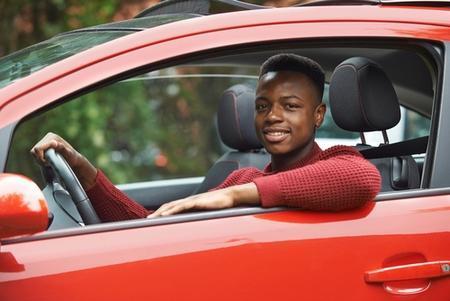
What Every Parent Should Know About Illinois’ Graduated Driver Licensing Program
 The Graduated Driver Licensing is new to many parents with student drivers since these rules were not in place until around 2011.
The Graduated Driver Licensing is new to many parents with student drivers since these rules were not in place until around 2011.
According to Illinois Law, the purpose of the Graduated Licensing Program is to develop safe and mature driving habits in young, inexperienced drivers and reduce or prevent motor vehicle accidents, fatalities, and injuries by providing for an increase in the time of practice period before granting permission to obtain a driver's license, strengthening driver licensing and testing standards for persons under the age of 21 years, sanctioning driving privileges of drivers under age 21 who have committed serious traffic violations or other specified offenses, and setting stricter standards to promote the public's health and safety. See 625 ILCS 5/6-107.
In other words, Illinois’ Graduated Driver Licensing Program allows teen drivers to gain experience on the road and prove they are good drivers before they “graduate” to fewer restrictions and more driving privileges.
There are three phases to the Illinois Graduated Driver Licensing Program. The first phase is the instruction permit phase for drivers that are 15 years old. To obtain a permit, a parent or legal guardian must consent to for the child to obtain a permit and the child must also be enrolled in an approved driver education course and must pass vision and written tests. This phase requires the child to drive on his or her permit for at least nine months and requires a minimum of 50 hours of practice driving time, including 10 hours of nighttime driving, supervised by a parent or adult age 21 or older with a valid driver’s license. However, it is important to note that there are nighttime driving restrictions— Sunday-Thursday, 10 pm-6 am; Friday-Saturday, 11 pm-6 am (local curfews may differ)—so, it is important to conduct this nighttime practice earlier in the evening. During the permit period, there cannot be any driving infractions and any cell phone use is prohibited, even if it is hands free (except in the case of an emergency). Any violations could result in a nine-month waiting period before the child is able to apply for a driver’s license and, if your child is caught driving without a permit, he or she will ineligible to obtain a driver’s license until the age of 18.
The second phase is the initial licensing phase (Ages 16-17), which means that the child now has a valid driver’s license and is able to drive without a parent or adult supervising. However, there are several restrictions all parents should be aware of. Once your child obtains a driver’s license (initial licensing phase), there are restrictions on the number of passengers allowed in his or her vehicle for the first 12 months of licensing or until he or she reaches the age of 18, whichever occurs first—the number of passengers is limited to one person under age 20, unless the passenger(s) is a sibling, stepsibling, child or stepchild of the driver. In addition, the cell phone use and nighttime driving restrictions that applied in the permit period also apply during phase two. Any child under the age of 18 who violates the nighttime driving restriction could have their driving privileges suspended. As it relates to cell phone use, including a hands-free device, is strictly prohibited for all drivers under age 19, except in the case of an emergency and could result in a traffic infraction. In order to graduate to the full licensing phase (phase three), your child must be conviction-free for six months prior to turning 18. To obtain court supervision for a traffic violation, a driver must appear in court with a parent/legal guardian and also must attend traffic safety school (anyone under the age of 21 is required to attend traffic safety school). If your child receives a conviction for a moving violation that occurs within the first year of licensing, it will result in a six-month extension of the passenger limitation, which allows only one unrelated passenger under age 20. If your child receives two convictions for moving violations within a 24-month period, this will result in a minimum one-month driver’s license suspension and suspended drivers must attend a remedial education course before they are able to reinstate their driving privileges.
The final phase is the full licensing phase (drivers ages 18-19). There are no age-related restrictions except in cases where a driver fails to move from the initial licensing phase to the full licensing phase (other than the restriction on cell phone use, which applies to drivers under age 19). Even though your child is now in the “full licensing phase,” it is still important to note that the same rules still apply with respect to convictions for moving violations. Specifically, two moving violation convictions occurring within a 24-month period will result in a suspension of their driver’s license the length to be determined by the seriousness of the offenses and the driver’s prior driving history and an additional driver’s license suspension will result for each subsequent moving violation following the initial suspension.
Regardless of the phase of the Graduated Driver Licensing Program, all parents should also know that any violation for possession or consumption of alcohol for a person under the age of 21, regardless of whether a vehicle was involved, may result in your child’s license being suspended.
It is important for all parents with student drivers to be aware of the rules under Illinois’ Graduated Driver Licensing Program as the implications of a violation of those rules could result in serious consequences. For more information, contact one of the attorneys at Nagle & Giese, P.C.

 630-407-1200
630-407-1200






